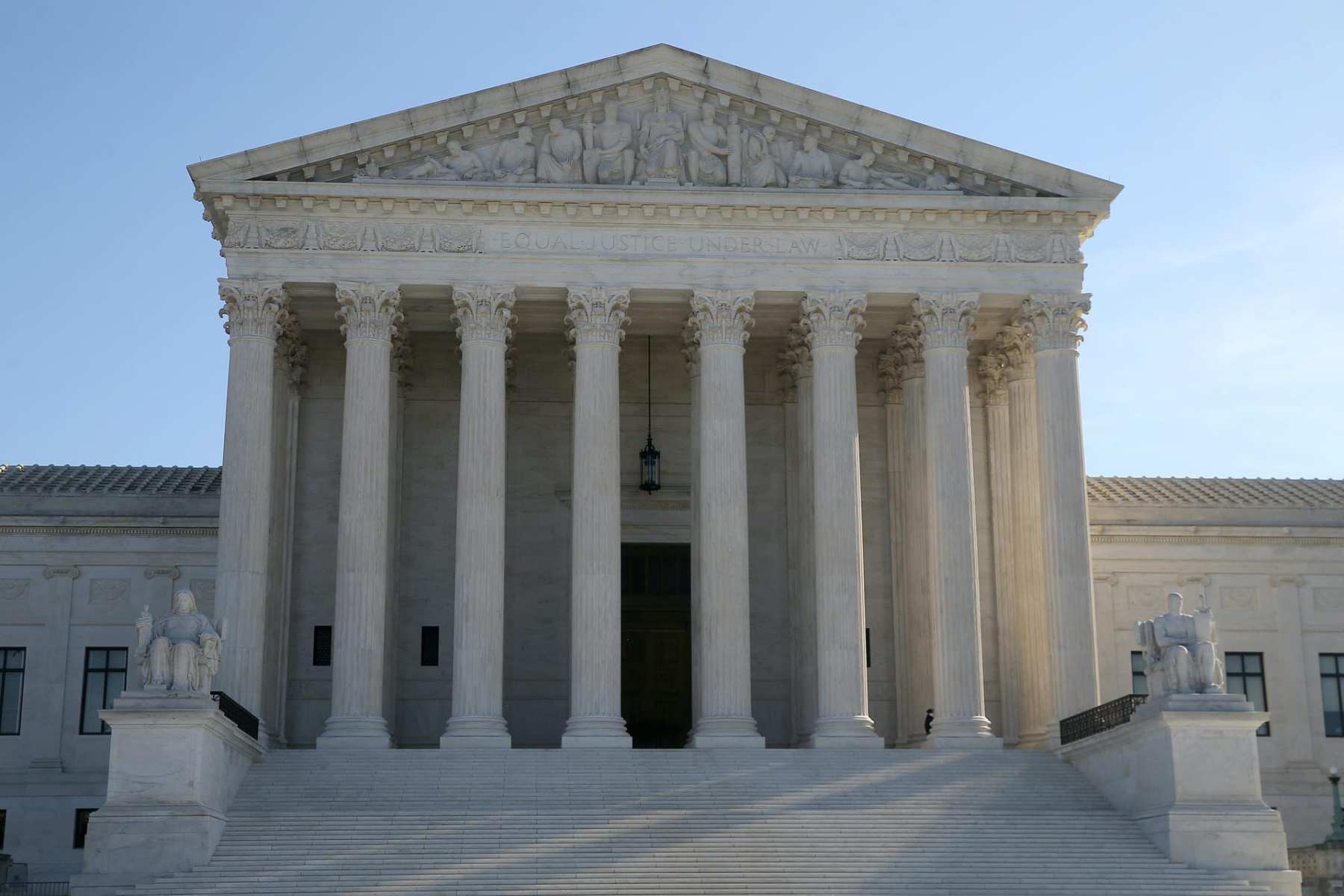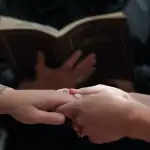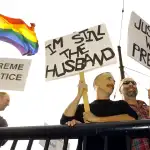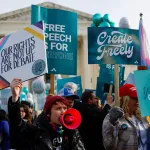We’re the only newsroom dedicated to writing about gender, politics and policy. Subscribe to our newsletter today.
As the eyes of the nation were on election returns Wednesday, many LGBTQ+ Americans monitored the Supreme Court. On November 4, the court heard arguments in Fulton v. City of Philadelphia, a case involving a Catholic foster care agency that said its religious beliefs prevented it from matching children with same-sex couples.
The case could upend nondiscrimination law in the country, deciding if state and local governments can continue setting the terms of their contracts, or if in some cases, religious contractors will get their own separate exemptions.
The case dates back to 2018, when a reporter informed Philadelphia officials that two of its contracted foster care agencies — Catholic Social Services (CSS) and Bethany Christian Services — weren’t placing kids with same-sex couples, breaking their contracts and state law. Bethany Christian Services changed its policy, but CSS did not. When the city didn’t offer CSS a new contract in June 2018, the agency sued.
LGBTQ+ advocates argue that a ruling in favor of CSS could tear a hole in anti-discrimination laws for all protected classes, including immigrants, other religious groups and people of color.
Karen Loewy, senior counsel for Lambda Legal, says the case threatens to upend safety nets for LGBTQ+ seniors who disproportionately rely on government-contracted agencies such as meal programs and elder housing.
“You’re really seeing the harm really across the lifespan from allowing religiously-affiliated government contractors to say, ‘Well, your civil rights laws don’t apply to me,’” Loewy said during a September Facebook livestream.
The case is seen as a harbinger of things to come on the new 6-3 conservative court after the appointment of Justice Amy Coney Barrett. It comes just a month after Justices Clarence Thomas and Samuel Alito suggested that marriage equality should be overturned. LGBTQ+ advocates have claimed that Barrett, who has had ties to an extreme anti-LGBTQ+ organization, cannot rule fairly.
On Wednesday, conservative justices repeatedly pointed out that no couples had approached CSS, and LGBTQ+ couples had multiple options in Philadelphia for fostering apart from CSS. However, the court also expressed concern about the outsized impact a ruling in favor of CSS could have on other protected groups.
In several instances, the court paralleled the issue of same-sex marriage with that of interracial marriage, suggesting each time that the court had a greater or more established interest in protecting interracial marriage.
“What if there was an agency who believed that interracial marriage was an offense against God and, therefore, objected to certifying interracial couples as foster families?” Barrett asked.
“It’s hard to imagine the City making that kind of concession in a case involving interracial marriage,” replied attorney Lori Windham.
Hashim Mooppan, a lawyer for the Justice Department, said that religious contractors should be protected.
“While it’s true that the government in some contexts gets greater latitude when it’s acting in a contracting capacity, what it doesn’t get is the ability to discriminate against its contractors on the basis of their religion or religious exercise,” Mooppan said.
Neal Katyal, an attorney for Philadelphia, said the city held all of its contractors to the same standard.
“We weren’t looking for some sort of fight here,” he said. “Obviously, the city was torn up about it. But they looked at the stigma, they looked at the need to increase the pool, and they looked at and thought about the fact that you couldn’t have [foster care agencies] just grafting on new requirements to a contract that they themselves signed.”






